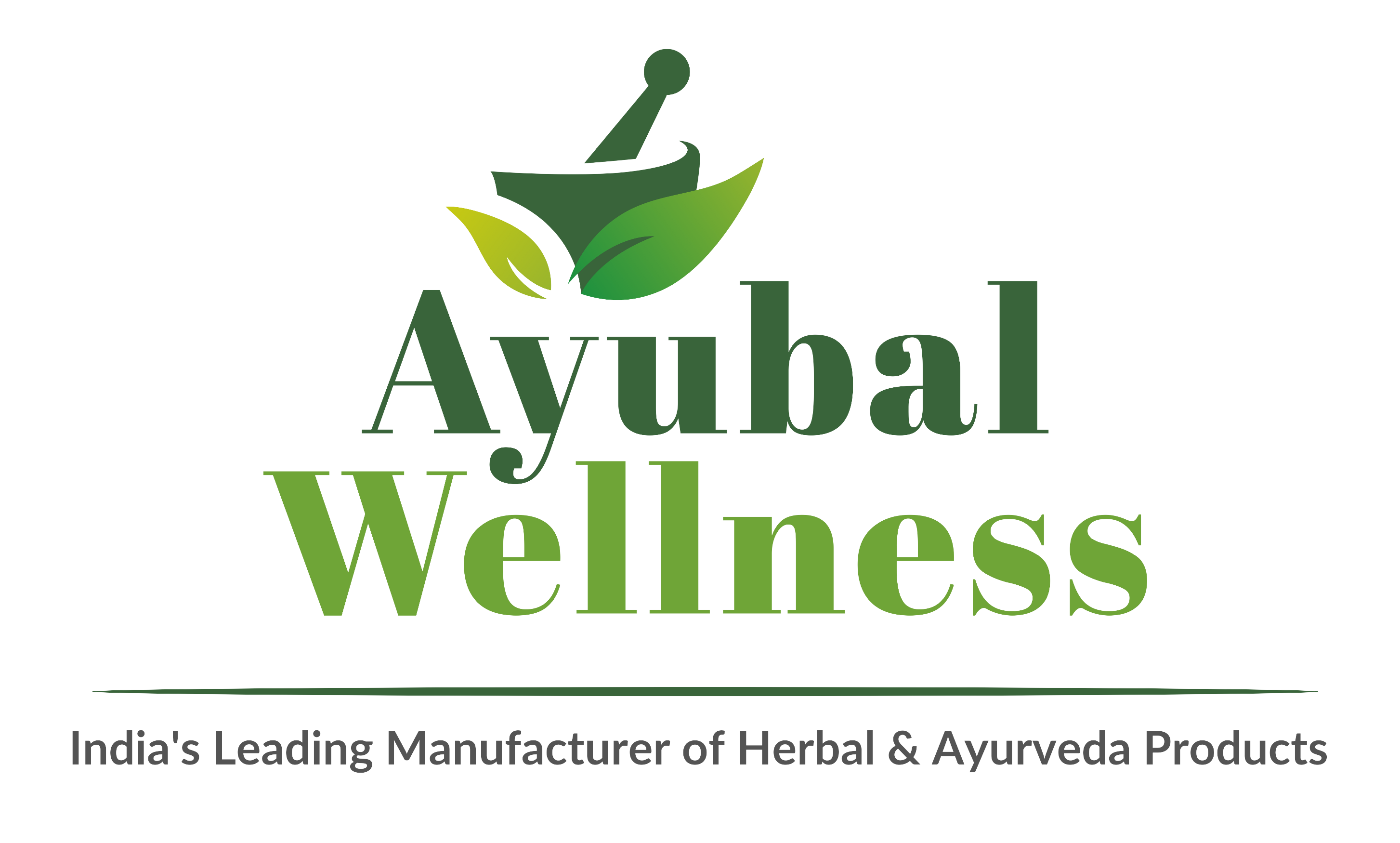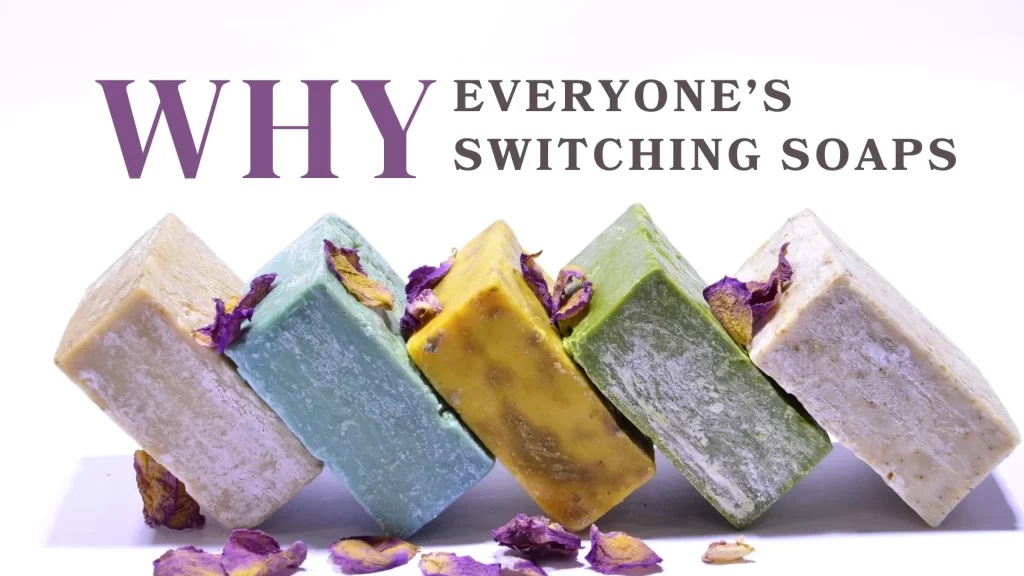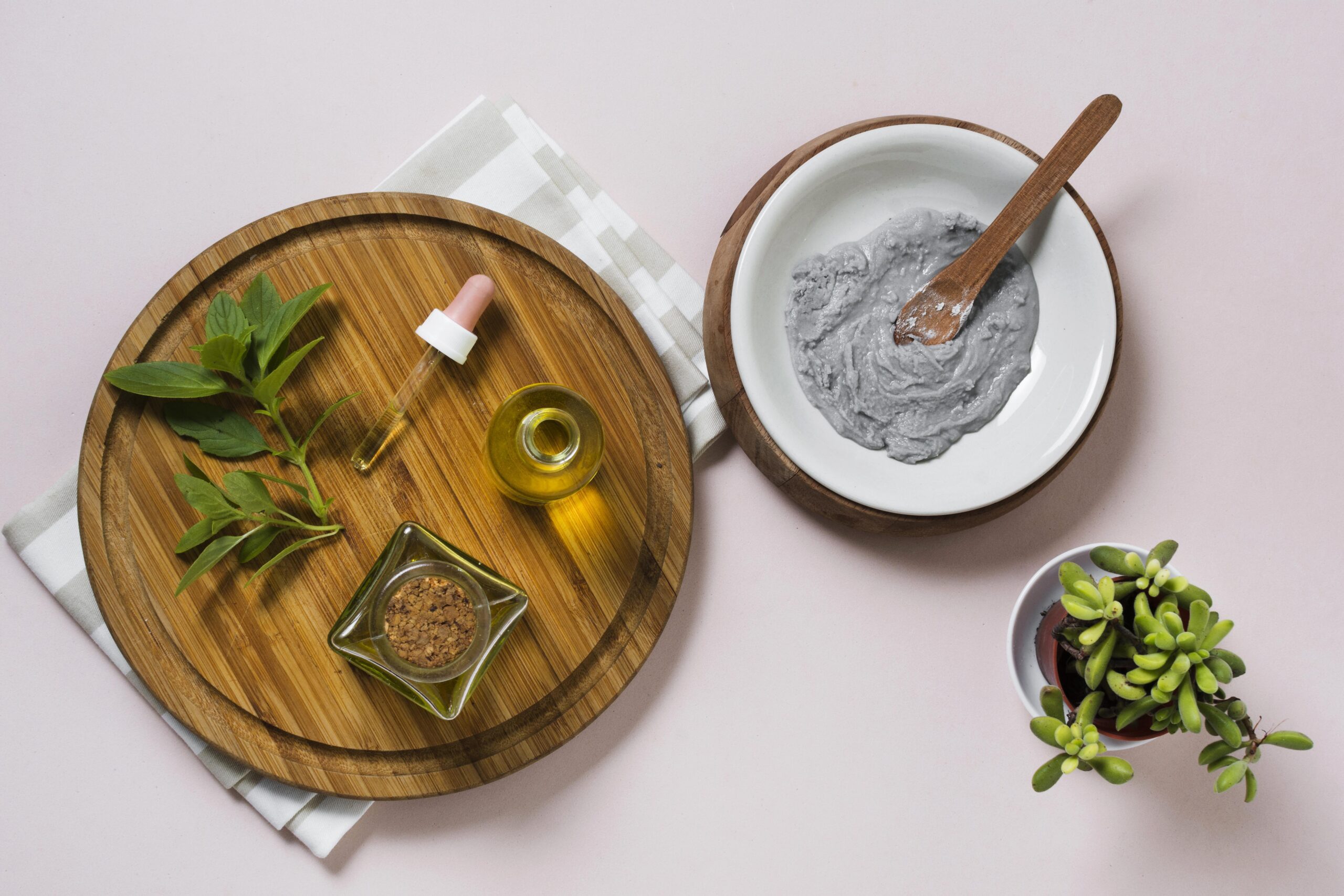On the other hand, handmade soaps, especially those rooted in Ayurvedic traditions, are proving to be a superior alternative—for your skin, your health, and the environment.
In this article, we’ll explore the powerful benefits of handmade soaps, compare natural soap vs. commercial soap, and uncover why choosing a chemical-free, plant-based product isn’t just better for your body—it’s also a conscious step toward a more sustainable lifestyle.
Ayurvedic Products for Business
What Are Handmade Soaps?
Handmade soaps are thoughtfully crafted skincare products made using natural oils, butters, herbal extracts, and other earth-derived ingredients. They are typically produced through traditional methods such as cold process or melt-and-pour techniques. Unlike mass-produced commercial soaps, handmade soaps retain natural glycerin—a powerful humectant that helps draw moisture to the skin—and are often free from harsh chemicals like sulfates, parabens, and synthetic fragrances.
From the perspective of an accomplished entrepreneur who has observed both the wellness industry and consumer behavior closely, the shift towards handmade soaps reflects a growing desire for authenticity and purity. As more people seek cleaner lifestyles and become conscious of what they apply to their skin, handmade soaps represent a return to simplicity and intention.
Many artisans and wellness practitioners draw from ancient traditions like Ayurveda, integrating time-tested herbs, botanicals, and nourishing oils into their formulations. These natural blends do more than just cleanse—they nourish, soothe, and protect the skin, making self-care a more holistic experience. The rise of handmade soaps is not just a trend—it’s a movement grounded in transparency, sustainability, and a deeper understanding of wellness.
Handmade Soaps Benefits for Skin Health
Your skin is the largest organ in your body—and the most exposed to toxins. What you apply to it matters.
1. Gentle on Skin
Commercial soaps often contain strong detergents that strip your skin of its natural oils, leaving it dry and irritated. Handmade soaps, in contrast, are made with moisturizing ingredients like:
- Coconut oil: Offers deep hydration
- Shea butter: Nourishes and softens
- Olive oil: Rich in antioxidants
- Castor oil: Boosts lather and smoothens skin
These natural oils protect the skin barrier and keep your skin soft and healthy.
2. Rich in Glycerin
During soap making, natural glycerin is formed—a powerful humectant that draws moisture into the skin. Unlike commercial manufacturers who often remove glycerin to use in other products, handmade soap makers keep this valuable compound intact.
3. No Harsh Chemicals
Handmade soaps avoid common irritants found in commercial products, such as:
- Sulfates (like SLS)
- Parabens
- Petrochemicals
- Synthetic colors and preservatives
These chemicals can disrupt the skin’s pH, trigger allergies, and even cause long-term damage.
4. Ayurvedic Herbs for Healing
Handmade soaps made using Ayurvedic principles often include:
- Neem – antibacterial and antifungal
- Tulsi (Holy Basil) – purifies and soothes
- Turmeric – anti-inflammatory and brightening
- Sandalwood – calming and cooling
- Aloe Vera – deeply hydrating and healing
These ingredients don’t just cleanse; they treat, balance, and rejuvenate the skin.
Natural Soap vs. Commercial Soap: A Clear Comparison
| Feature | Handmade/Natural Soap | Commercial Soap |
| Ingredients | Natural oils, herbs, essential oils | Synthetic detergents, petrochemicals, artificial fragrances |
| Skin Impact | Moisturizing, gentle, healing | Drying, harsh, may irritate sensitive skin |
| Glycerin | Retained | Often removed |
| Fragrance | Natural essential oils | Synthetic perfumes |
| Environmental Impact | Biodegradable, minimal waste |
High chemical runoff, plastic-heavy packaging |
The difference is clear: natural handmade soaps offer holistic skincare that supports both body and planet.
Why Handmade Soaps Are Better for the Environment
Aside from their skincare benefits, handmade soaps play a vital role in sustainable living.
1. Biodegradable Formulas: Gentle on Skin & Earth
One of the most significant advantages of handmade soaps is their biodegradable nature. These soaps are crafted using natural oils, herbs, essential oils, and plant-based ingredients that decompose naturally without harming the environment. Unlike synthetic commercial soaps that often contain parabens, sulfates, and petroleum-based ingredients, handmade soaps don’t leave behind toxic residues.
When you rinse off natural soap, its ingredients return to the environment in a safe and non-disruptive way. In contrast, mass-produced soaps release chemical by-products into water systems, contributing to water pollution and harming aquatic life. Over time, these synthetic substances accumulate in our rivers, oceans, and soil, damaging ecosystems.
By choosing biodegradable handmade soaps, you’re not just caring for your skin—you’re making a conscious choice to protect the planet.
2. Minimal Packaging: Less Waste, More Impact
Handmade soap brands, especially those that are eco-conscious, are leading the charge in sustainable packaging. These businesses understand that how a product is wrapped matters just as much as what’s inside. That’s why you’ll often find their soaps wrapped in recyclable, compostable, or reusable materials—such as kraft paper, cardboard boxes, or cloth wraps—instead of single-use plastics.
This shift isn’t just a marketing strategy; it’s a conscious commitment to reducing the growing burden of plastic pollution and landfill waste. More than 8 million tons of plastic enter our oceans every year, much of it from product packaging alone. The impact is staggering—not only on marine life but also on global ecosystems and human health.
From the perspective of an accomplished business leader, this evolution in packaging reflects a deeper trend: consumers no longer want products at any cost—they want products that align with their values. Sustainability is no longer a niche concern; it’s a standard expectation.
Choosing brands that offer minimal and plastic-free packaging isn’t just an environmental gesture—it’s a strategic move toward long-term brand trust and loyalty. When companies commit to reducing their ecological footprint, they don’t just serve the planet—they position themselves as forward-thinking, responsible players in a conscious marketplace.
3. No Animal Testing: Ethical, Cruelty-Free Products
Many handmade soap makers uphold strict cruelty-free values, ensuring that no animals are harmed or tested on in any part of the product development process. These soaps are often 100% vegan, made without animal fats, by-products, or testing.
When you choose handmade soaps that are certified cruelty-free, you’re not only investing in your personal wellness but also taking a firm stand against animal cruelty. Supporting such ethical brands helps drive change in the beauty and wellness industry, encouraging more companies to adopt humane and compassionate practices.
Your daily choices send a powerful message: wellness doesn’t have to come at the cost of another life.
4. Sustainable Sourcing: From Nature to Your Skin, Responsibly
Handmade soaps have carved a unique space in the wellness and personal care industry — not just for their quality, but for their deep-rooted commitment to sustainability. According to the insights of a seasoned entrepreneur, the rising consumer preference for natural, eco-conscious products is not just a trend, but a shift in values — one that aligns health, ethics, and environmental responsibility.
This is where handmade soaps shine. Unlike mass-produced alternatives, these artisanal products focus on sustainability at every stage — from ingredient sourcing to production methods. Here’s how the handmade soap industry is setting a benchmark:
Ethically Sourced Ingredients
Entrepreneurs who have spent years building conscious businesses recognize that what goes into a product matters as much as how it’s made. Handmade soaps often feature ingredients that are:
- Cold-pressed oils like coconut, olive, and castor oil — known for their skin benefits and gentle extraction processes
- Organic herbs and botanicals, carefully selected for purity and efficacy
- Locally harvested ingredients that reduce transportation emissions and support small-scale farming
- Natural colorants and fragrances such as turmeric, sandalwood, lavender, and rose — avoiding synthetic additives that harm both the skin and the environment
Click to Find out: Best Selling Ayurvedic Products for Business
Ayurvedic Handmade Soaps: Ancient Wisdom for Modern Skin
Ayurveda, India’s ancient science of life, views the skin not just as an organ but as a reflection of internal balance. Ayurvedic skincare emphasizes harmony, detoxification, and nourishment—ideals that align beautifully with handmade soap production.
Ayurvedic Principles in Handmade Soaps:
- Dosha-balancing herbs to suit different skin types
- Use of natural cooling or warming ingredients
- Emphasis on oil-based cleansing to preserve the skin barrier
- Handcrafted with sankalpa (intention)—an energetic practice honoring both nature and user
Who Should Use Handmade Soaps?
Everyone. But they are especially beneficial for people who:
- Have dry, sensitive, or acne-prone skin
- Suffer from eczema, psoriasis, or skin allergies
- Are looking to reduce their chemical exposure
- Follow a natural or Ayurvedic skincare routine
- Want to minimize their environmental impact
Whether you’re caring for your face, body, or gifting a loved one, handmade soaps are a thoughtful and health-conscious choice.
Choosing the Best Herbal Soap for Skin
Not all handmade soaps are created equal. When shopping, look for these qualities:
- Clearly listed natural ingredients
- Presence of Ayurvedic herbs or essential oils
- Absence of artificial colors, fragrances, and preservatives
- Eco-friendly or minimal packaging
- Ethical, cruelty-free certifications
Tips to Switch to Natural Skincare Products
Ready to make the shift to chemical-free soap and skincare? Here’s how to start:
- Read Labels Carefully: Avoid long ingredient lists with names you can’t pronounce.
- Patch Test First: Even natural ingredients can cause reactions—test a small area before full use.
- Be Patient: Your skin might take a few days or weeks to adjust to natural products.
- Pair with a Natural Routine: Use herbal oils, toners, and moisturizers for a complete holistic regimen.
- Stay Consistent: Results from natural skincare may be gradual but are far more sustainable.
Choose Better for Your Skin & the Planet
Your skin deserves more than synthetic lather and artificial scents. It deserves the richness of nature, the healing of herbs, and the integrity of conscious craftsmanship.
Handmade soaps are more than a skincare product—they’re a wellness practice. They represent a return to simplicity, a respect for the environment, and a love for your own health.
At Ayubal Wellness (Ayurvedic Third Party Manufacturing) , we believe in creating skincare that honors Ayurveda, supports your well-being, and nurtures the planet. Our range of natural, chemical-free, handmade soaps is a gentle step toward a cleaner lifestyle—for you and for the world.






